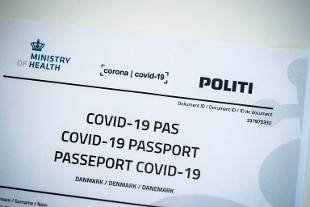Share
September 01, 2021 Denmark, the first country to introduce a covid-19 pass six months ago, today lifted the requirement in most public places, a few days before all restrictions were lifted on September 10.
The outbreak is considered to be under control with 71.8% of the population fully vaccinated and more than 83% having at least one injected dose.
Available on an app or in print, the pass has always been considered a temporary requirement and was initially supposed to expire on October 1st. Already today, however, the pass is no longer required in cafes, bars, restaurants, gyms. It will still be needed at major indoor public events and nightclubs.
The country, which has recorded 2,500 deaths from covid, has already abandoned the obligation to wear masks in public transport in mid-August and on 1 August revoked the obligation of the covid pass in museums and indoor events with less than 500 people .
The large vaccination gap between countries in the European Union
The desired milestone has been reached: 70% of the EU adult population has completed vaccination against Covid-19. But behind yesterday's announcement by the European Commission on the mission accomplished lies a strong difference between Western and Central Eastern Europe, with almost all the countries of the former Soviet bloc still stuck at vaccination rates below 60%.
From the figures on the immunization campaign published by the European Center for Disease Prevention and Control, the delay in
Bulgaria
, which has completed the vaccination of just 20 per cent of its adult population, stands out.
The
Romania
ranks in the penultimate position, with a rate of 31.9 percent, preceded by
Latvia
(46.4 percent) and
Croatia
(47.7 percent), the last country to be entered in the European Union .
Among the most populous states that have found difficulties in the immunization campaign from Covid,
Poland
stands out
, stuck at a vaccination rate of just over 58 percent.
On the other hand,
Malta
(90.8 per cent),
Ireland
(87.7 per cent),
Denmark
,
Portugal
and
Belgium
(all three at above 83 percent).
The four most populous EU countries -
Germany
,
France
,
Italy
and
Spain
- are in the 70 to 80 percent range, with Italy succeeding, 24 hours behind the average pace in the rest of the EU, to match the goal of seven vaccinated for every ten adults.

